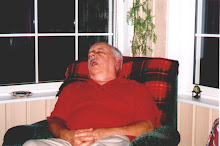Ruth
One of the most beautiful passages in the Bible has to be Ruth's entreaty to Naomi, her mother-in-law. "Entreat me not to leave thee, or to return from following after thee; for whither thou goest I will go; and wither thou lodgest, I will lodge; thy people shall be my people, and thy God my God; where thou diest, will I die, and there will I be buried; the Lord do so to me, and more also, if aught but death part thee and me."
Naomi was from Bethlehem in Judah. At a time of famine in the land, she left with her husband and two sons to reside on the plateau of Moab, on the eat side of the Dead Sea, which is now a part of Jordan. Her two sons married Moabites, one of whom was Ruth. Over the next ten years, Naomi's husband and both her sons died.
Some time later, word reached her that the Lord had visited his people and given them food. She resolved to return to her people and left with her daughters-in-law. On the way , however, she entreated them to return to Moab where they could find new husbands. They protested, but finally Orpah relented and returned, but Ruth would have none of it and thus uttered the quotation above. Upon their arrival, the whole city was astir over them. "Can this be Naomi?" asked a woman. "Do not call me Naomi. Call me Mara, for the Almighty has made it very bitter for me. I went away with an abundance, but the Lord has brought me back destitute. Why should you call me Naomi, since the Lord has pronounced against me and the Almighty has brought evil upon me?" Many people today blame God for their troubles, but I think Naomi had a solid case.
They arrived in Bethlehem at the beginning of the barley harvest and Ruth went out gleaning. To glean is to gather what's left after the regular reaping. To make a long story short, she ended up marrying Boaz, master of the harvest and a big man in town.
In pursuing the Book of Ruth, however, I did not come across the famous "the sad heart of Ruth, when sick for home, She stood in tears amid the alien corn." Such a phrase can leave one with a lump in the throat, but it is not in the Bible. Google led me to John Keats' Ode to a Nightingale.
There it is, smack in the middle of the poem, out of the blue, seemingly unrelated to anything else in the ode. Not being a poetry addict, I'll leave it at that, except to say that corn was not known until the Spanish conquest of America. Some one should have informed Keats. But then, would "the alien barley" have sounded as good? I don't think so. Poets have a licence, you know.

